Skin
Vegan Collagen Skincare Products
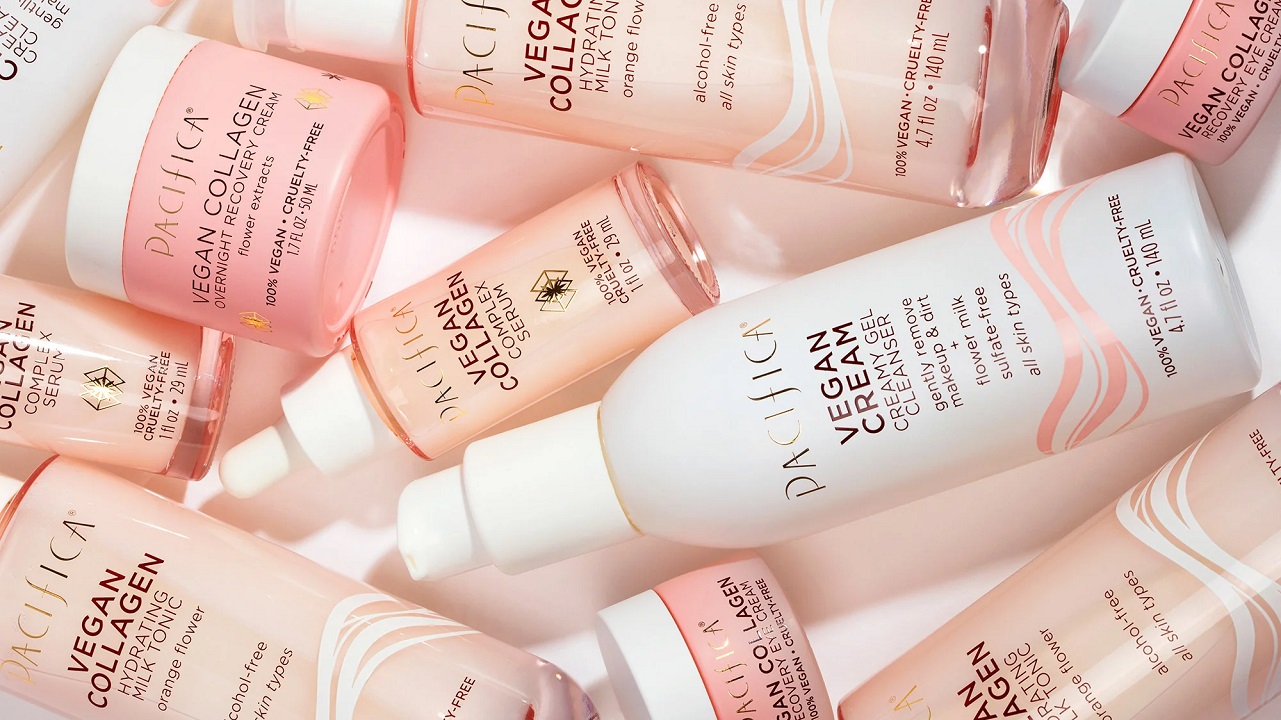
In recent years, there has been a noticeable trend in the beauty business toward vegan and cruelty-free products. Vegan collagen skincare products have become a popular and ethical option as more people become aware of the substances in their skincare routines and their effects on the environment and animals. Traditionally, collagen—a protein that gives skin structure and elasticity—comes from animal sources. However, because of developments in science and technology, there are now synthetic and plant-based substitutes that provide comparable advantages without raising ethical questions.
What is Collagen?
The most prevalent protein in the human body, collagen accounts for around 30% of total protein content. It plays a significant role in connective tissues, which include cartilage, tendons, ligaments, and skin. Collagen helps to keep the skin smooth and firm by giving it strength and flexibility. Natural collagen production declines with age, causing wrinkles, drooping skin, and other indications of aging.
Traditional Collagen Sources
Animals, mainly cows (bovine collagen) and fish (marine collagen), have historically provided the collagen utilized in skincare products. These resources have demonstrated efficacy in enhancing skin suppleness and diminishing wrinkles. However, the hunt for substitute sources has been spurred by the moral and environmental issues surrounding collagen obtained from animals.
Ethical Concerns
Animal welfare and the usage of animals for cosmetic purposes are two ethical concerns that are brought up by the use of collagen generated from animals. Using products that involve the pain or death of animals makes many customers uneasy.
Environmental Impact
A major cause of environmental deterioration, including deforestation, greenhouse gas emissions, and water pollution, is animal agriculture. Customers can lessen their environmental impact and promote more sustainable practices by selecting vegan substitutes.
Vegan Collagen: A Sustainable Alternative
Vegan collagen is made from synthetic and plant-based sources rather than animal collagen. These substitutes are made to resemble the composition and capabilities of animal collagen, providing comparable skin benefits.
Plant-Based Collagen
Typically, bacteria, genetically modified plants, and yeast are the sources of plant-based collagen. These organisms can be genetically modified by scientists to create proteins that resemble human collagen in structure.
Yeast and Bacteria: It is possible to genetically modify yeast and bacteria to create proteins that resemble collagen through a process known as fermentation. This process makes it possible to produce vegan collagen on a huge scale with little harm to the environment.
Genetically Modified Plants: It is possible to genetically modify some plants, such tobacco and maize, so that they generate proteins that resemble collagen. This method uses plants’ inherent capacity for protein synthesis to produce collagen that is cruelty-free and sustainable.
Synthetic Collagen
Collagen-like proteins are developed in the lab utilizing bioengineering techniques to make synthetic collagen. Without the usage of chemicals originating from animals, these proteins are made to have the same qualities as natural collagen and offer comparable skin-benefiting effects.
Benefits of Vegan Collagen Skincare Products
Compared to conventional, animal-derived collagen skincare products, vegan alternatives provide a number of advantages. Among these advantages are:
Cruelty-free and ethical
Customers may be sure that no animals were injured throughout the production process by selecting vegan collagen goods. This is consistent with the beliefs of individuals who place a high priority on cruelty-free procedures and animal welfare.
Ecologically Conscious
In general, vegan collagen production techniques are less harmful to the environment than animal agriculture. This entails fewer land requirements, less water use, and fewer greenhouse gas emissions.
Hypoallergenic
Compared to collagen made from animals, vegan collagen is less likely to trigger allergic reactions. This makes it a good choice for people who have allergies to animal products or delicate skin.
Powerful Anti-Aging Advantages
Vegan collagen has similar benefits to typical collagen in terms of promoting young appearance, reducing wrinkles, and enhancing skin suppleness. The effectiveness of vegan collagen products is equal to that of their animal-derived counterparts thanks to scientific developments.
Advocacy for Plant-Based and Vegan Diets
Using vegan collagen skincare products guarantees that a person adhering to a vegan or plant-based lifestyle will make consistent nutritional and ethical decisions.
Key Ingredients in Vegan Collagen Skincare
Vegan collagen skincare products frequently include a blend of synthetic and plant-based substances that support the health of the skin and the creation of collagen. Among the essential components are:
Sodium Hyaluronate
The skin naturally contains hyaluronic acid, which aids in hydration and moisture retention. It is frequently added to vegan collagen products to improve their moisturizing properties.
Calcium
Strong antioxidant vitamin C is essential for the formation of collagen. It promotes the synthesis of new collagen and shields the skin from oxidative stress.
Peptides
Peptides are short sequences of amino acids that can increase skin elasticity and collagen synthesis. To enhance their anti-aging properties, they are frequently used in vegan collagen products.
Vera Aloe
A plant-based substance with calming and moisturizing qualities is aloe vera. It can contribute to the efficacy of vegan collagen products by offering extra relaxation and hydration.
Vegetable Oils
Antioxidants and vital fatty acids abound in plant oils including jojoba, argan, and rosehip. These oils can enhance general skin health, strengthen the skin’s barrier, and nourish the skin.
Popular Vegan Collagen Skincare Products
Numerous companies have jumped on board with the vegan collagen skincare trend, providing a selection of products to address various skin types and issues. Several well-liked vegan collagen skincare products consist of:
First, Pacifica Beauty
Vegan Collagen Overnight Recovery Cream is one of the cruelty-free and vegan skincare products offered by Pacifica Beauty. Hyaluronic acid, vegan collagen, and antioxidants are used in the formulation of this cream to moisturize and revitalize the skin overnight.
Biossance
Biossance is renowned for its dedication to eco-friendly and moral skincare products. To lessen the appearance of fine lines and wrinkles, their Squalane + Phyto-Retinol Serum blends vegan collagen with phyto-retinol and plant-based squalane.
Algenist
Popular vegan collagen serum Algenist’s Genius Liquid Collagen is a special blend of microalgae oil, plant-based collagen, and other skin-beneficial components. Intense hydration and improved skin firmness and suppleness are the goals of this serum.

Youth for the People
Adaptogen Deep Moisture Cream is one of the vegan skincare products available from Youth to the People. To promote skin resilience and moisture, this cream contains peptides, vegan collagen, and adaptogenic herbs.
Skin-E
Peptides, antioxidants, and vitamin C are combined in Derma-E’s Advanced Peptides and Collagen Moisturizer, a vegan collagen product that supports skin that looks younger. It is intended to improve skin texture and lessen the visibility of wrinkles.
DIY Vegan Collagen Skincare
Making your vegan collagen skincare products at home is a fun and customized option for individuals who like a more hands-on approach. To help you started, consider these easy recipes:
DIY Vegan Collagen Face Mask
Ingredients:
- 1 tablespoon of aloe vera gel
- 1 teaspoon of vitamin C powder
- 1 teaspoon of vegetable glycerin
- 2-3 drops of lavender essential oil (optional)
Instructions:
- In a small bowl, combine the aloe vera gel, vitamin C powder, and vegetable glycerin.
- Mix well until the ingredients are fully incorporated.
- Add the lavender essential oil, if desired, and stir to combine.
- Apply the mixture to clean, dry skin, avoiding the eye area.
- Leave the mask on for 15-20 minutes, then rinse off with warm water and pat dry.
DIY Vegan Collagen Serum
Ingredients:
- 2 tablespoons of rosehip oil
- 1 tablespoon of jojoba oil
- 1 teaspoon of vitamin E oil
- 5-6 drops of frankincense essential oil
Instructions:
- In a small glass dropper bottle, combine the rosehip oil, jojoba oil, and vitamin E oil.
- Add the frankincense essential oil and shake well to mix.
- Apply a few drops of the serum to clean the skin, massaging gently until fully absorbed.
- Use the serum morning and night for best results.
Future of Vegan Collagen Skincare
The development of new and superior products is being driven by constant research and innovation, which bodes well for the future of vegan collagen skincare. We should anticipate more brands adopting vegan collagen and adding it to their product ranges as consumer demand for ethical and environmental solutions grows.
Biotechnology Advances
Technological developments in biotechnology are opening doors to more economical and effective ways to make vegan collagen. This includes utilizing synthetic biology, gene editing, and sophisticated fermentation techniques to produce proteins that resemble collagen but have better qualities.
Increased Accessibility
We may expect vegan collagen skincare products to be more widely available and more reasonably priced as the production process grows more efficient. This will facilitate the integration of these morally responsible and efficacious products into the daily routines of a wider spectrum of consumers.

Combining Other Innovations in Skincare
Vegan collagen skincare products are probably going to be combined with other skincare advancements like smart beauty gadgets and tailored skincare. This will maximize the advantages of vegan collagen by enabling customers to customize their skincare regimens to suit their particular requirements and preferences.
Conclusion
Vegan skincare products provide a sustainable and compassionate substitute for conventional collagen sourced from animals. For consumers who are concerned about the environment, ethical sourcing, and potent anti-aging qualities, vegan collagen products are a great option due to their many advantages. We can anticipate even more cutting-edge and easily accessible vegan collagen skincare alternatives as the beauty business develops, enabling us to take care of our skin while upholding our moral principles.
Skin
Can Dietary Choices Influence Skin Pigmentation?
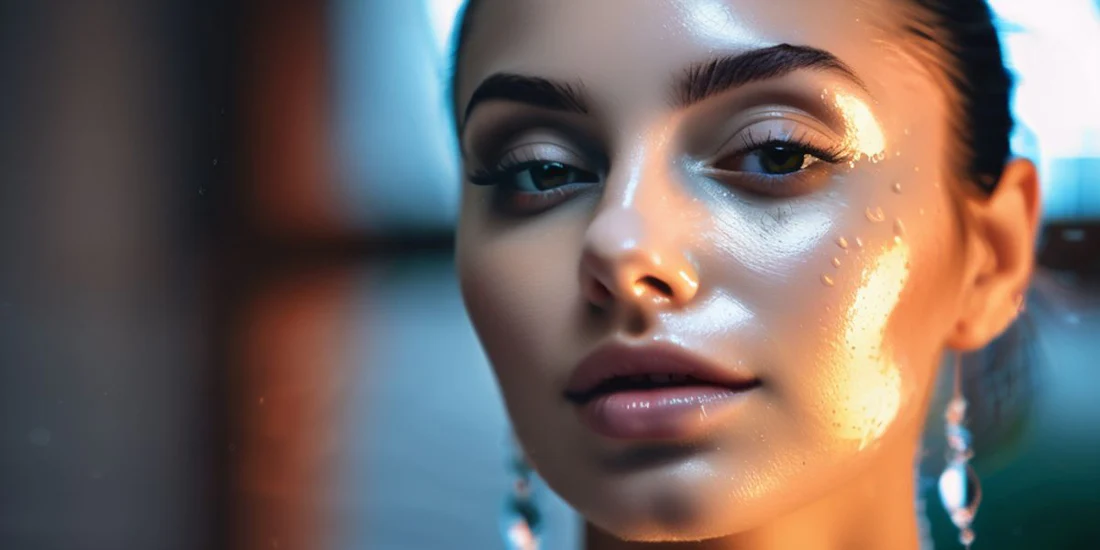
The adage “you are what you eat” holds a surprising veracity when considering the vitality and hue of your skin. While factors like heredity, lifestyle, and skincare regimens undeniably shape your dermal health, the food you consume wields its unique influence. Certain edibles can accentuate or subtly shift your natural complexion, lending it a luminous radiance or, conversely, prompting discoloration. But to what extent can nutrition modify skin pigmentation? Let’s delve into the scientific intricacies of this captivating connection.
Carotenoids: Nature’s Pigment Architects
Carotenoids, organic pigments residing in produce like carrots, spinach, sweet potatoes, and tomatoes, are responsible for their vivid yellow, orange, and red tones. Upon ingestion, these pigments are stored within the skin’s outermost layer, imbuing it with a sunlit, golden hue. This phenomenon, often termed “carotenoid-induced skin coloration,” exemplifies how diet directly interacts with dermal appearance.
Research substantiates that individuals who incorporate carotenoid-rich provisions into their meals often exhibit a healthier, more alluring skin tone. However, this effect is transient, dissipating once the consumption of such nutrient-dense foods declines.
Beta-Carotene and Its Surprising Effects
A prominent member of the carotenoid family, beta-carotene, is particularly adept at altering skin tone. Found in abundance in pumpkins, carrots, and yams, this compound can accumulate in the skin with excessive consumption, leading to a condition known as carotenemia. This temporary and benign state renders the skin a yellowish-orange tint, a striking testament to how dietary elements manifest visibly.

Hydration: The Unsung Hero of Skin Vitality
While water itself doesn’t transform pigmentation, it remains indispensable for preserving skin suppleness and averting dryness. Adequate hydration amplifies your skin’s natural brilliance, making it appear dewy and invigorated. In essence, water functions as a silent enhancer of your dermal luminosity.
Antioxidants: Guardians of Radiance
Foods imbued with antioxidants—like berries, green tea, and walnuts—fortify your skin by neutralizing harmful free radicals that damage cells and incite pigmentation irregularities. Regular consumption of these nutrient powerhouses fosters an even, radiant skin tone, underscoring the protective synergy between diet and dermal health.
Culinary Culprits Behind Discoloration
Not all dietary choices illuminate the skin. Certain foods detract from its vitality:
- Processed Sugars and Snacks: Excessive intake inflames the body, manifesting as redness, blemishes, and lackluster skin.
- High Sodium Content: Overindulgence in salt dehydrates the body, leaving the skin pallid and fatigued.
- Allergy-Inducing Foods: For some, food sensitivities can provoke rashes, discoloration, or uneven pigmentation.

Cultural Perspectives on Diet and Skin Brilliance
Across global cultures, dietary customs play an integral role in nurturing skin radiance.
- South Asia: Turmeric, revered for its anti-inflammatory prowess, is a culinary cornerstone for enhancing skin clarity.
- East Asia: Green tea is cherished for fostering an ethereal, even-toned complexion.
- Mediterranean Region: Olive oil and nuts, staples of this diet, are lauded for promoting glowing, youthful skin.
Can Food Permanently Transform Skin Tone?
Despite its temporary influence, food cannot permanently alter melanin levels—the pigment dictating your natural skin color. Genetic coding and sun exposure govern melanin production, limiting the extent to which diet alone can modify pigmentation.

Culinary Tips for Radiant Skin
For a diet that enhances skin health and luminosity, consider these recommendations:
- Vibrant Produce: Infuse your meals with fruits and vegetables brimming with carotenoids and antioxidants.
- Omega-Rich Fish: Fatty fish like salmon deliver essential lipids that hydrate and soothe skin.
- Vitamin E Sources: Nuts and seeds shield skin cells from oxidative stress.
- Whole Grains: Support dermal repair with nutrient-dense grains.
Conclusion:
While dietary choices cannot override genetics, they play an undeniable role in amplifying your skin’s texture, tone, and radiance. By mindfully selecting nutrient-rich foods, you can embrace a complexion that reflects health and vitality. Remember, the nourishment on your plate is mirrored in your skin—so let it glow with wholesome intention.
Skin
Natural Face Moisturizers for Rosacea: Reviews & Buyers Guide
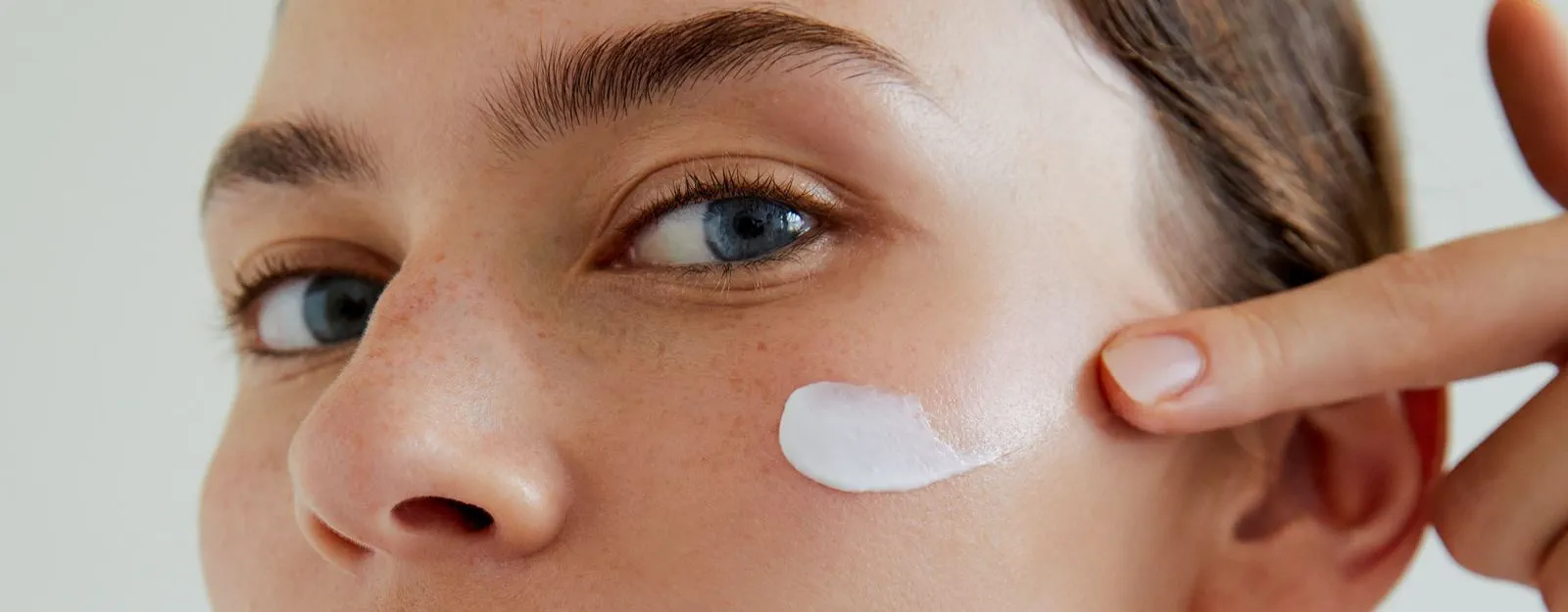
Table of Contents
Tips on Choosing the Right Moisturizer For Your Skin
Advantages of Using a Natural Face Moisturizer
1. These creams can help to reduce wrinkles:
2. Moisturizers are ideal for your skin:
3. The oils protect your skin:
4. The creams shrink enlarged pores:
5. The moisturizers down rashes:
What to Consider When Looking for Moisturizers for Rosacea
Best face wash and moisturizer for rosacea: Moisturizing your skin is a great way to protect your skin when treating rosacea. Some natural face moisturizers offer protection against environmental factors that exacerbate rosacea symptoms.
Before you settle on a moisturizer, read this review carefully, and always talk to your dermatologist.
- Avoid moisturizers that have too many fragrances. You should also avoid harsh cleansers, or any products that contain alcohol as they may contribute to rosacea outbreaks.
- Watch out for rosacea irritants found in different skin care products. They include alcohol, fragrance, Hazel, eucalyptus oil, peppermint and menthol. Other things you want to avoid include exfoliating agents, astringents and anything else that’s harsh for sensitive skin.
- Test any product on a peripheral area before you apply it on your skin. That will help you avoid any product that you react to and take note of the ingredients. Rosacea irritants vary from person to person, and your skin’s reaction should be your guide.
Mistakes to Avoid When Applying Moisturizers
Over-saturating your skin
Rubbing the skin too hard
Not allowing the cream to sink in
Forgetting the area under the eyes
Forgetting the neck area
What you Should Know Before Using Moisturizer for Rosacea
1. Premature wrinkles:
2. Your complexion may be dull and flaky:
3. Your layer of protection may become lost:
4. Your skin may become itchy:
Read the Label
Sensitive skin
Bland moisturizers
Best face wash and moisturizer for rosacea: These moisturizers are free from harsh ingredients that irritate the skin. You want to avoid anything that can trigger a flare-up. Avoid using moisturizers that have redundant components. The best products alleviate your skin’s dryness. Avoid moisturizers with alcohol, fragrances and related additives.
Avoid acne treatment products
Regardless of whether your rosacea is accompanied with pimples, it is not advisable to use moisturizers formulated for treating acne. They have ingredients such as benzoyl peroxide and salicylic acid that can dry your skin. Consult a dermatologist for the best way to treat acne while dealing with rosacea.
Calming ingredients
Try using moisturizers that have a calming effect on your skin to reduce the symptoms of rosacea. Chamomile, aloe and green tea are natural products that have a soothing effect. That will help to lessen the redness and inflammation you could be experiencing.
Sunscreen
Exposure to the sun is a known trigger for rosacea flare ups. Choose a moisturizer with an SPF 15 protection or higher or stay covered!
5 of the Best Moisturizers for Relieving Rosacea Reviewed
1. Miravage Facial Redness and Rosacea Relief Cream & Anti-Aging Moisturizer Serum
PROS
- You can wear it under your makeup
- Offers anti-aging benefits
- There is no greasy feeling
- Quickly absorbed into your skin
CONS
- Has a light scent that lingers
2. Era Organics Face Cream
PROS
- 60-day money back guarantee
- Non-greasy formula
- Has anti-aging properties
CONS
- Can be a bit expensive
3. Aveeno Eczema Therapy Moisturizing Cream
PROS
- Recommended by dermatologists
- Fast acting formula that hydrates and soothes
- Steroid and fragrance free
- Reasonably priced
- Great packaging for easy use
CONS
- Relatively thick formula feels heavy during application
4. HoneySkin Organics Aloe Vera Ultimate Face and Body Cream
PROS
- Organic product
- Doesn’t have fillers like mineral oils, parabens or water
- Light non-greasy formula
- No fragrance
CONS
- A little bit costly
- Few people are allergic to some ingredients
5. La Roche-Posay Soothing Moisturizer
PROS
- Fragrance free
- Reduces chances of skin dryness
- Easy to apply light texture
CONS
- It is relatively expensive
Conclusion
Dermatologists still have a long way to go about rosacea. Scientists are still learning what its real causes are and the best way to treat it. While there may be some genetic factors, the environment has a big contribution as well. There are different underlying factors causing rosacea. People battling it should make choices that eliminate the risk of outbreaks. Take note that your diet can trigger rosacea flare-ups. You want to avoid spicy foods, hot foods and drinks, and alcoholic beverages. But a moisturizer designed for those suffering from rosacea can help for some. As per the review, the Honeyskin Face & Body Cream stands out to me as the best moisturizer for rosacea here. Just remember that everyone’s skin reacts differently. Trial & error and speaking to your dermatologist are a couple of ways you can figure out which cream will work for your skin.
Skin
Neutrogena Nordic Berry Lip Balm
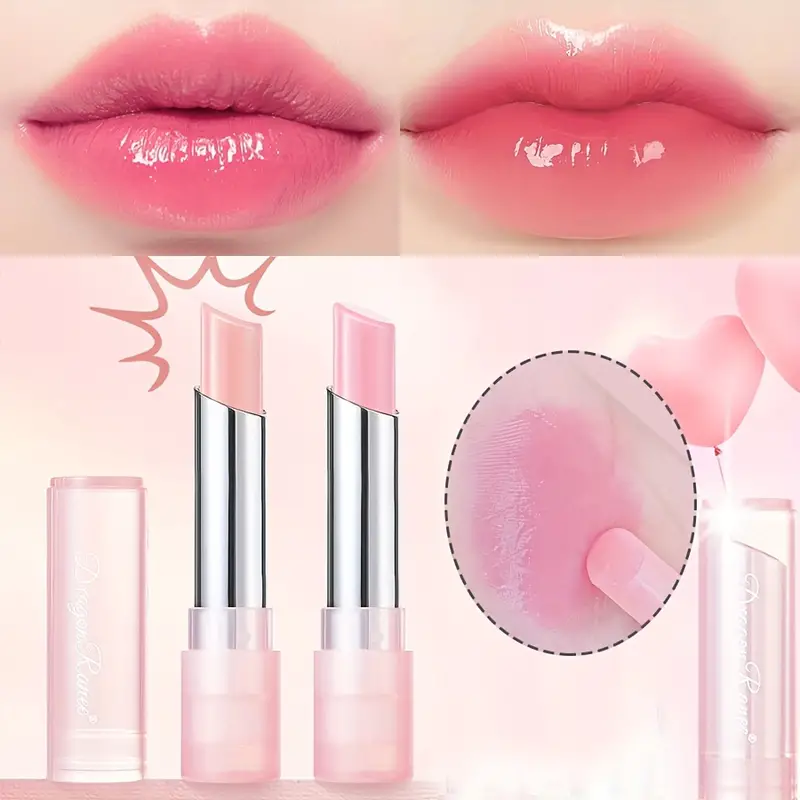
For those who prize meticulous lip care, the Neutrogena Nordic Berry Lip Balm emerges as a singular gem. Revered for its remarkable capacity to nurture, rejuvenate, and shield lips from the merciless grip of environmental extremities, this balm epitomizes the harmony of scientific innovation and nature’s bounty. Drawing inspiration from the nutrient-laden Nordic berry, it offers an exquisite confluence of advanced dermatological craftsmanship and organically sourced constituents. Below, we explore why this product claims a venerated spot among lip care connoisseurs globally.

Why Neutrogena Nordic Berry Lip Balm Stands Apart
This isn’t just another run-of-the-mill lip balm—it’s an intricate symphony of potent natural extracts and cutting-edge dermatological precision. Key attributes include:
- Infusion of Nordic Berry Extracts: These berries, abundant in antioxidants and vital nutrients, neutralize free radicals and infuse lips with deep hydration.
- Dermatologist-Endorsed Integrity: Clinically validated for its mildness, this balm suits even the most delicate lips.
- Enduring Moisturization: In contrast to the fleeting hydration offered by many alternatives, this balm ensures extended softness and resilience.
Dissecting the Key Ingredients
Nordic Berry Extract
As the core essence of this formulation, Nordic berry extract delivers unparalleled skin-enhancing benefits. Rich in vitamins C and E, it fortifies against environmental adversities while restoring suppleness.
Glycerin
Esteemed as a humectant, glycerin magnetizes moisture, safeguarding lips against aridity.
Panthenol (Pro-Vitamin B5)
Renowned for its reparative prowess, panthenol alleviates discomfort caused by cracked or inflamed lips, promoting swift recovery.
Shea Butter
This natural emollient cocoons the lips in a barrier of hydration, thwarting damage from icy winds and relentless heat.

Advantages of Using Neutrogena Nordic Berry Lip Balm
- Profound Moisture
This balm obliterates dryness, leaving lips velvety smooth. Its humectant-emollient blend delivers moisture unparalleled in longevity. - Defensive Antioxidants
Empowered by Nordic berry extract, the balm shields lips from oxidative stress, protecting against UV rays and pollution. - Extended Wear Time
Unlike its peers, this balm minimizes the need for frequent applications, offering sustained comfort throughout the day. - Luxurious Texture and Subtle Scent
Its silken consistency glides effortlessly across lips, while the faint aroma of Nordic berries provides a delightful sensory experience. - Adaptability Across Seasons
From frosty winters to sweltering summers, this balm is indispensable for year-round lip care.
Optimal Usage for Maximum Benefit
To harness the full potential of Neutrogena Nordic Berry Lip Balm, consider the following regimen:
- Gentle Exfoliation: Slough away dead skin cells with a mild lip scrub.
- Generous Application: Evenly coat your lips for comprehensive hydration.
- Reapplication Protocol: While its longevity is noteworthy, reapply after meals or exposure to severe conditions.
- Pairing with Lip Masks: For intense care, combine it with an overnight lip treatment.

A Comparative Glance
Positioned ahead of its competitors, Neutrogena Nordic Berry Lip Balm prioritizes the root causes of lip distress. Unlike generic alternatives offering superficial relief, this balm provides enduring solutions through its innovative blend of natural antioxidants and hydrating agents.
What Distinguishes It:
- Pure Ingredients: Free from irritants like parabens and synthetic fragrances.
- Expert Recommendations: Favored by dermatologists for its hypoallergenic attributes.
- Affordable Luxury: Top-tier efficacy without an exorbitant price.
Dermatological Advocacy
Esteemed by skin experts, Neutrogena Nordic Berry Lip Balm consistently proves its mettle. Its hypoallergenic composition and reparative properties make it suitable for all age groups, including children, ensuring lips remain protected and resilient.
The Ideal Candidate for This Balm
This balm caters to a wide audience:
- Chronic Dryness: An elixir for persistently parched lips.
- Extreme Climates: A fortress against severe cold, wind, and UV exposure.
- Sensitive Individuals: Free from harsh chemicals, ensuring compatibility with delicate skin.
Glowing Testimonials
Enthusiastic users worldwide laud this balm’s transformative effects:
- “No lip balm has ever worked as effectively! My lips feel rejuvenated all day.” – Sarah M.
- “The fruity scent and long-lasting hydration make this a staple for me.” – James K.
- “Winters used to wreak havoc on my lips—this balm changed everything.” – Emily R.
Accessibility
Conveniently available, Neutrogena Nordic Berry Lip Balm can be procured through:
- The official Neutrogena website.
- Major platforms like Amazon.
- Retail giants such as Walmart and Target.
- Pharmacies including CVS and Walgreens.
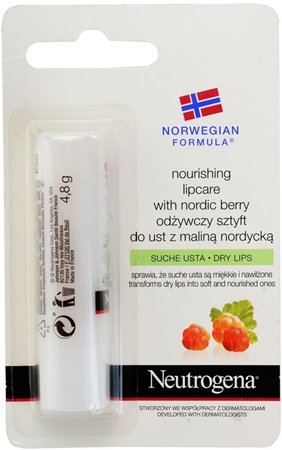
Closing Thoughts
Neutrogena Nordic Berry Lip Balm transcends ordinary lip care to deliver an unparalleled experience. Blending the nourishing essence of Nordic berries with dermatologist-approved science, it offers year-round hydration, protection, and repair. For anyone seeking soft, healthy lips, this balm stands unrivaled in its category.
-
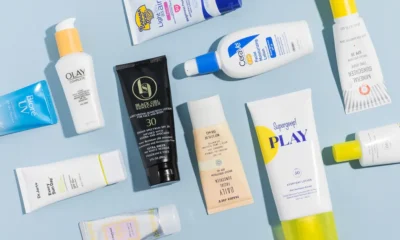
 Skin10 months ago
Skin10 months agoNatural Oil-Free Face Moisturizer Reviews & Buyers Guide
-
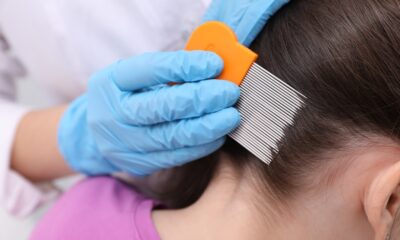
 Hair2 months ago
Hair2 months agoDoes a Flat Iron Kill Lice? Fact or Myth?
-
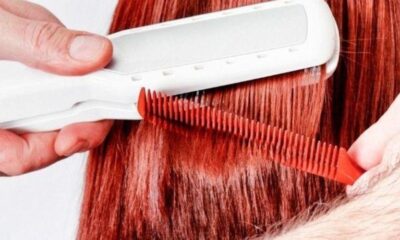
 Hair10 months ago
Hair10 months agoDoes a Flat Iron Kill Lice? Fact or Myth?
-
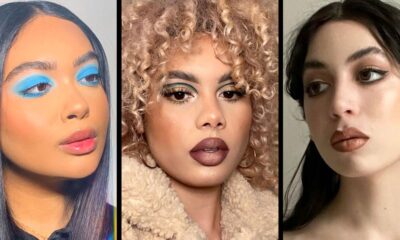
 Skin9 months ago
Skin9 months agoAbout Face Beauty: Tips for Enhancing Your Natural Beauty
-

 Skin10 months ago
Skin10 months agoNeutrogena Naturals Multi-Vitamin Nourishing Face Moisturizer Review
-
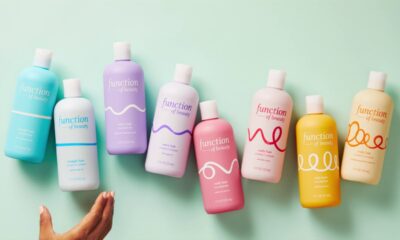
 Hair10 months ago
Hair10 months agoFunction of Beauty: Personalized Hair Care for Your Unique Needs
-
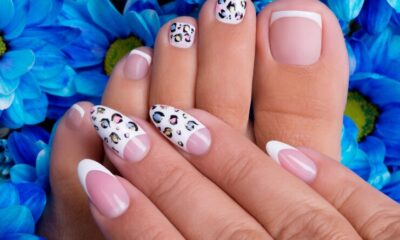
 Skin9 months ago
Skin9 months agoBeautiful Nails: Tips and Tricks for Healthy and Gorgeous Nails
-
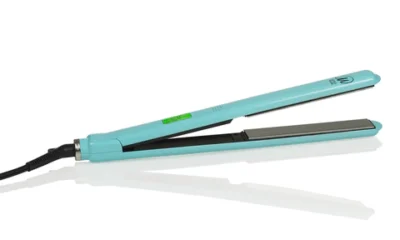
 Hair10 months ago
Hair10 months agoTitanium Flat Iron vs. Ceramic
